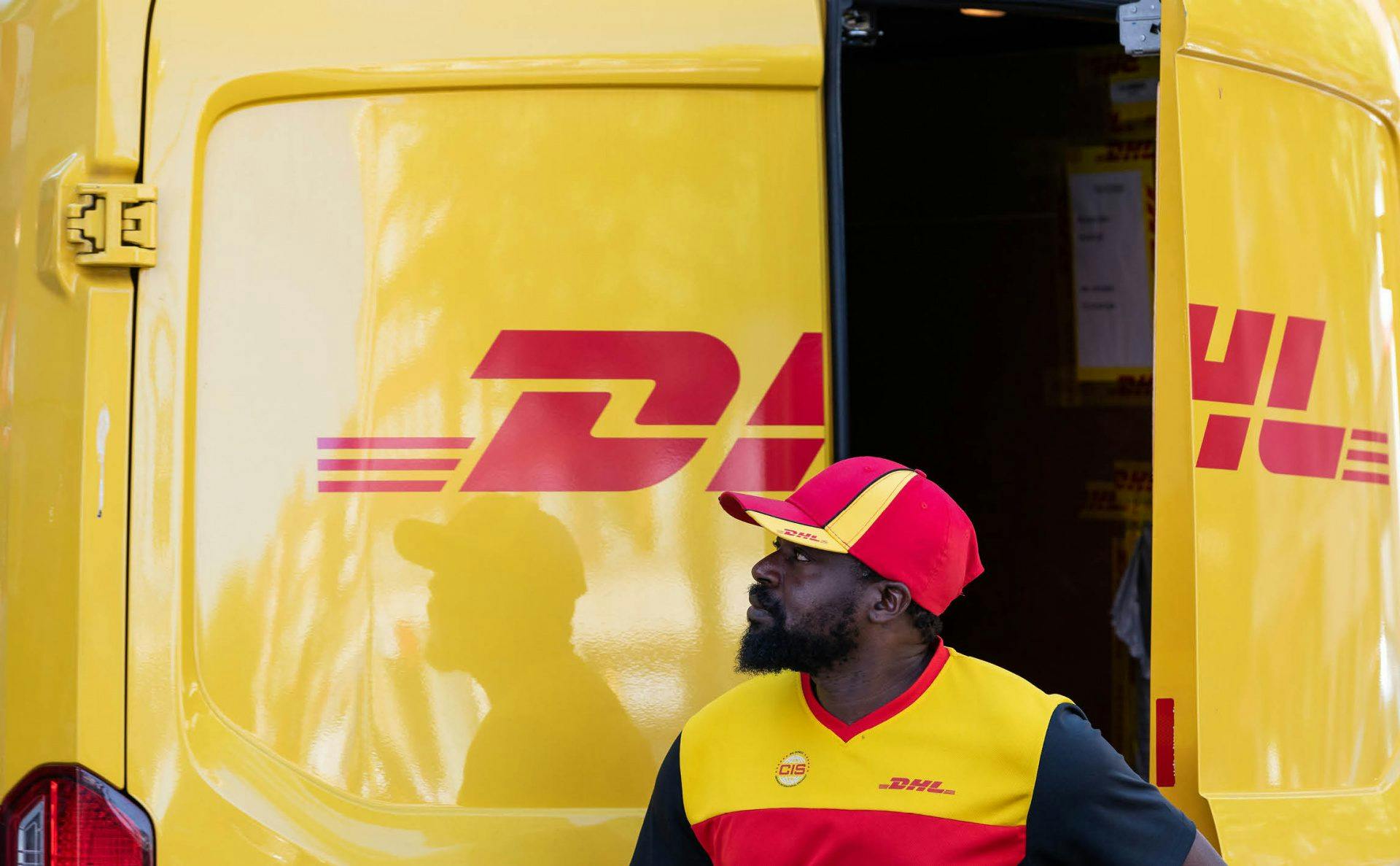Sally Miller has been with DHL for almost 18 years and has primarily worked in the supply chain sector throughout her career. “While I hesitate to call it a stuffy industry, it was definitely ripe for innovation when I started. There were opportunities for improvement and potential consolidation in the industry. The influx of venture capital and the influence of the Amazon effect, which kind of made logistics trending, have significantly changed my role from just implementing solutions to introducing innovative strategies to the business.”

Sally Miller, Global Digital Transformation Officer and Chief Information Officer for DHL Supply Chain in North America
"With labor shortages and unfilled roles, we're focusing on technologies that can reduce our labor dependency."
Game-changing data analytics
Asked for examples of innovation in the supply chain, Miller responds: “Robotics, data analytics, machine learning, and autonomous vehicles within warehouse confines are major innovations. For instance, autonomous material handling tools like reach trucks have been transformative. Additionally, visibility solutions, which leverage the data we collect, have been instrumental in enhancing our customer experience. It's indeed a rapid shift, largely driven by labor challenges both within the industry and nationwide. With labor shortages and unfilled roles, we're focusing on technologies that can reduce our labor dependency. This has altered how we design, implement, and continually refine our operations. We're actively seeking and scaling innovative solutions in the market.
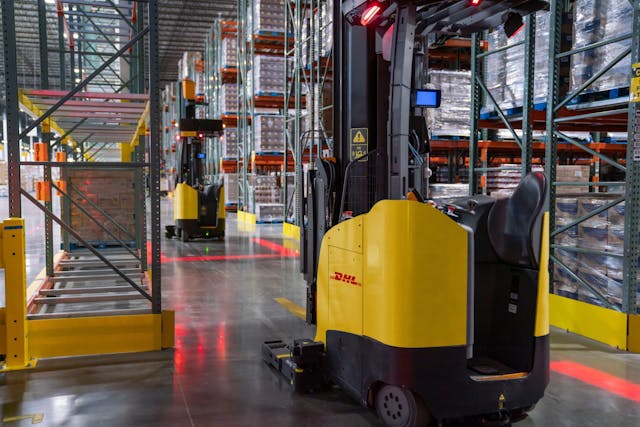
"Data analytics is streamlining decision-making for our management staff."
Have you observed tangible outcomes from these changes, or is it too early to assess?
“We've witnessed significant successes, particularly during peak seasons. Assisted picking robots, for instance, were invaluable during and post-COVID. Our visibility solutions, which process transportation data and key milestones, have received positive customer feedback, helping them manage exceptions and make well-informed decisions. Moreover, software solutions have enhanced our transportation fleet operations.” Data analytics is game-changing, states Miller. “By analyzing diverse data sets and developing algorithms, we can achieve more optimal solutions than by relying solely on human judgment. It’s comparable to how robotics is transforming manual tasks; data analytics is streamlining decision-making for our management staff. This technology is one of the fastest-growing and most impactful in the supply chain sector in recent memory.”
Flexibility is crucial
And DHL embraces it: “Our customers regard us as industry leaders in the third-party logistics market. They expect continuous improvements and innovative solutions from us. This drives us to leverage data analytics to make better decisions and continuously explore potential solutions from concept to deployment. Customers increasingly desire instant gratification, much like their experiences as consumers. They want real-time solutions and visibility, driven in part by a younger generation's expectations. This pushes us to enhance our services and be more responsive.”
The supply chain industry has faced challenges over the recent years, like the unpredictability of demand, the aftermath of the COVID crisis, and geopolitical developments. How does DHL handle these challenges?
“The unpredictability is real. However, it's essential for organizations to be nimble and adaptive. While geopolitical changes can be swift, major alterations in supply chain networks take time. Hence, our customers seek flexible solutions that ensure they can grow without supply chain constraints.” Amid all this uncertainty, automation can be part of the solution, confirms Miller. “Flexible automation, to be specific. The flexibility of robotics and autonomous vehicles offers adaptive solutions without a heavy capital outlay. With shifting customer demands and requirements, this flexibility is crucial. COVID in particular brought massive changes to customer behavior. With more people ordering online, we noticed a significant increase in direct shipments to end consumers and a growth in inventory levels. We witnessed an increased demand for products like soup, due to people cooking at home. It was a period of adjustment, but we managed to respond adequately. Things still haven’t returned to their pre-COVID state. Not entirely. While some patterns, like inventory levels, have normalized, the e-commerce transaction volume continues to grow, albeit at a slower pace.”
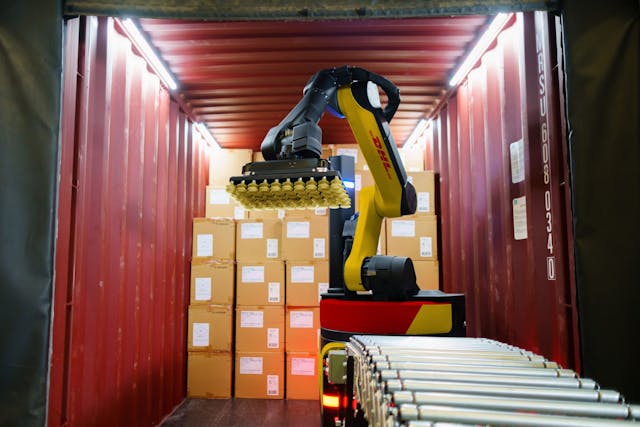
"The unpredictability is real. Our customers seek flexible solutions that ensure they can grow without supply chain constraints."
Sustainable solutions
Developments concerning sustainability are also impacting logistics and the supply chain. Miller: “Sustainability is integral to our core values. The supply chain accounts for a significant amount of CO2 emissions. We have set aggressive targets for carbon reduction, aiming to be carbon-neutral by 2050. We're not just reacting to regulations; it's about taking proactive steps to drive change, and we're aiming to achieve significant carbon reductions by 2030.”
Can you elaborate on some of DHL’s initiatives?
“We're investing heavily to achieve our goals, focusing on aspects like sustainable fuels, electric fleets, and green aviation. Electric transportation is paramount, especially in Europe, where it's more feasible due to shorter distances. In addition to electric vehicles, we've also incorporated solar panels in our warehouse structures and prioritized sustainable fuels and green aviation fleets. Not to mention bicycles, which we’re exploring for the last mile delivery in our postal business. The future holds challenges, but with innovation and commitment, we’ll navigate them successfully. Europe is ahead of the US in terms of sustainable solutions. European customers have a keen passion for green solutions and are more demanding, whereas in the US, the focus often leans more towards profit.”
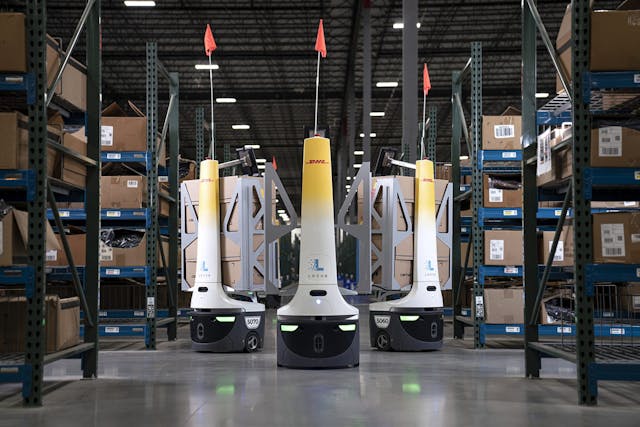
"With the surge of e-commerce, we're seeing a shift towards smaller, frequent shipments, necessitating more facilities close to urban centers."
Technological collaboration
DHL teams up with different technological partners, e.g. Boston Dynamics and ORTEC. “Collaboration is vital”, says Miller. “Many of these tech companies, while innovative, don't possess supply chain operational expertise. By partnering, we can influence product development and ensure our needs are met. This mutual collaboration helps us to design better solutions, especially as some solutions must operate independently and not alongside humans. Data analytics is foundational. While we harness significant data and functionality from our primary applications, we've also developed our in-house capabilities. Our focus is on identifying use cases, mining data, and applying technology.”
What trends do you foresee in the coming years?
“The ever-evolving technical requirements are a concern. We need diverse expertise, from cloud engineers to product engineers. Deciding whether to train existing staff, hire fresh graduates, or recruit experienced professionals is challenging. Previously, we excelled at integrating software packages. But today, we need experts who can extract and interpret data from these platforms. The changing market dynamics, especially with software providers offering SaaS solutions, requires us to adapt our approach.” Miller expects that the labor shortage will persist: “With the surge of e-commerce, we're seeing a shift towards smaller, frequent shipments, necessitating more facilities close to urban centers. This alters our customers' distribution networks, leading to varied transportation needs. They expect us to optimize all available options. Therefore, having software solutions to assist us is paramount.”
Download your magazine
This article is part of the 5th issue of our magazine Data and AI in the Boardroom. Get your copy now.
We've asked leading figures in different sectors about how their organizations go beyond maximizing supply chain efficiency by adapting quickly to the ever changing market.
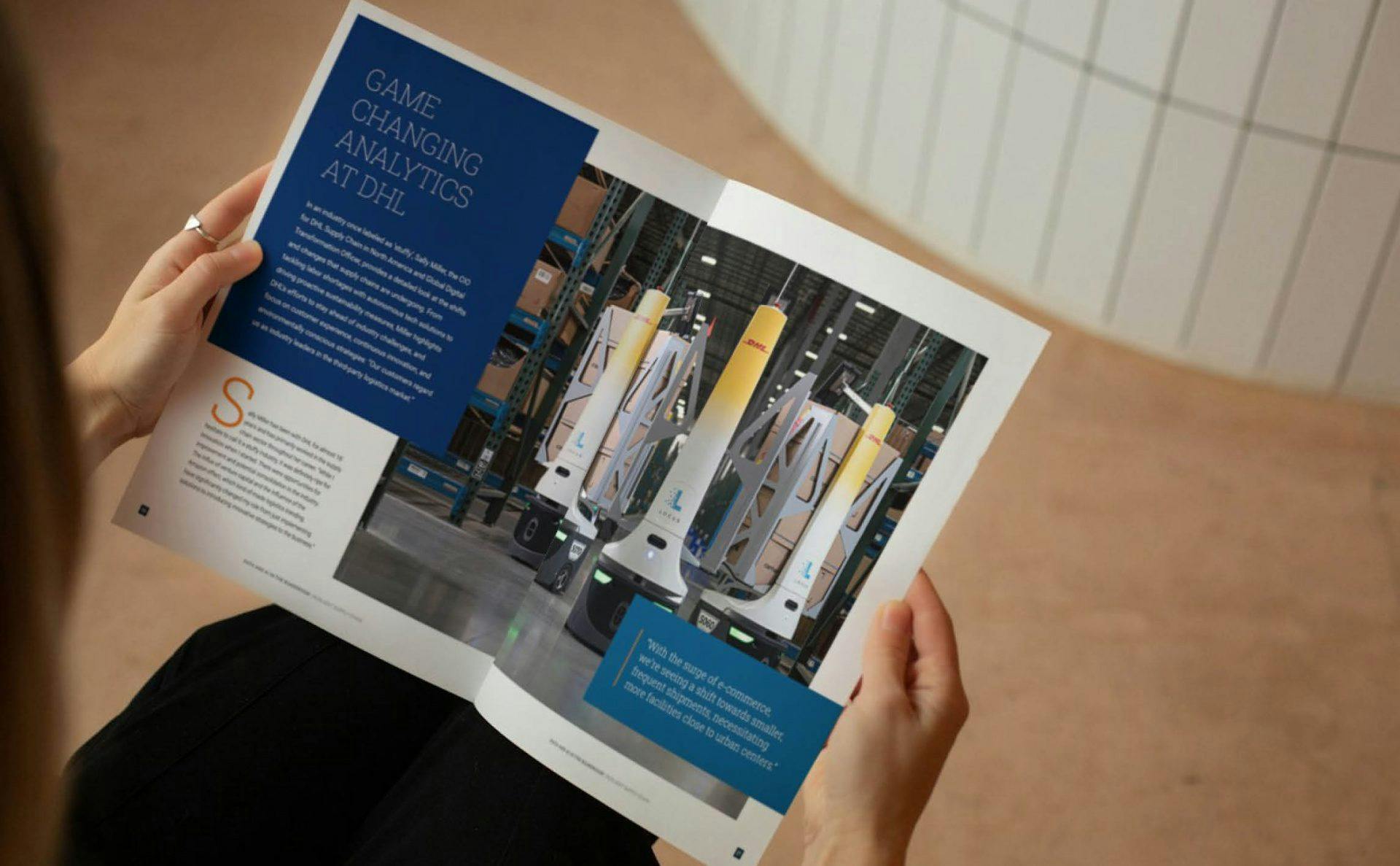
Don't miss out on the next insights
Sign up to our mailing list and be the first to receive our newest insights and digital magazine in your mailbox on a quarterly basis.
